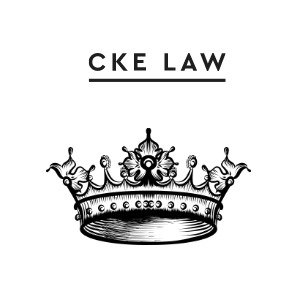Best Franchising Lawyers in Manchester
Share your needs with us, get contacted by law firms.
Free. Takes 2 min.
List of the best lawyers in Manchester, United Kingdom
About Franchising Law in Manchester, United Kingdom
Franchising law encompasses the rules and regulations that govern the buying and selling of franchises, a type of licensing agreement between two parties. In Manchester, United Kingdom, as well as across the UK, this sector is quite well-developed and competitive due to the presence of various domestic and international franchise businesses. The legal framework here is robust, guided by common law principles, franchise-specific legislation, and protective consumer laws, including Competition Law.
Why You May Need a Lawyer
Although there are no specific laws governing franchising in the UK, the complexity and potential legal ramifications involved make it essential for prospective franchisees and franchisors to seek expert legal advice. Common situations in which legal help is crucial include reviewing the franchise agreement, ensuring compliance with trading and competition laws, dispute resolution, issues related to intellectual property rights, and assistance with formation and termination of franchises.
Local Laws Overview
While franchising specific laws are not present in Manchester, certain UK laws are particularly relevant. These include Commercial Agency Regulations that cover some aspects of the franchise relationship, Intellectual Property laws governing the use and protection of brand and trademarks, and UK Competition Law ensuring a fair and level playing field in business practices. It is essential to seek legal counsel to understand and navigate these legal contexts correctly.
Frequently Asked Questions
What is a franchise agreement?
A franchise agreement is a contract between a franchisor and franchisee which lays out the responsibilities of both parties. The agreement may describe the business concept, ongoing fees, training, support, and necessary qualifications for the franchisee, among other details.
Can I terminate a franchise agreement?
Exit strategies or termination clauses should ideally be part of the original franchise agreement. If mutual termination conditions are not met, substantial repercussions can occur. Therefore, it is advisable to consult with a legal professional before attempting a termination.
How long does a franchise agreement last?
The duration of franchise agreements can vary greatly with most lasting between five and twenty years. It often depends on the type of business and the specific terms of agreement.
Are franchise agreements negotiable?
While franchise agreements are generally standard and non-negotiable, there may be some flexibility for prospective franchisees, particularly around issues like territory size and exclusivity. Legal advice should be sought when navigating potential adjustments to the agreement.
Do I need a lawyer to buy a franchise?
Although not obligatory, it is highly recommended to engage a lawyer when buying a franchise. They can help review agreements, ensure clear understanding, offer advice on potential pitfalls, and provide overall guidance through the process.
Additional Resources
For those seeking further information or support, sources such as the British Franchise Association (BFA), UK Intellectual Property Office, and the Citizens Advice Bureau might be helpful for understanding franchising and associated legal complexities in greater depth.
Next Steps
If you require legal help in franchising, the first step is to identify your specific needs. This might involve understanding franchise agreements, resolving disputes, or guidance on starting or ending a franchise. Subsequently, find a lawyer who specializes in franchise law, ideally with local expertise in Manchester. Prior to actual engagement, it could be useful to prepare a clear and concise description of your situation and your expectations from them.
Lawzana helps you find the best lawyers and law firms in Manchester through a curated and pre-screened list of qualified legal professionals. Our platform offers rankings and detailed profiles of attorneys and law firms, allowing you to compare based on practice areas, including Franchising, experience, and client feedback.
Each profile includes a description of the firm's areas of practice, client reviews, team members and partners, year of establishment, spoken languages, office locations, contact information, social media presence, and any published articles or resources. Most firms on our platform speak English and are experienced in both local and international legal matters.
Get a quote from top-rated law firms in Manchester, United Kingdom — quickly, securely, and without unnecessary hassle.
Disclaimer:
The information provided on this page is for general informational purposes only and does not constitute legal advice. While we strive to ensure the accuracy and relevance of the content, legal information may change over time, and interpretations of the law can vary. You should always consult with a qualified legal professional for advice specific to your situation.
We disclaim all liability for actions taken or not taken based on the content of this page. If you believe any information is incorrect or outdated, please contact us, and we will review and update it where appropriate.














